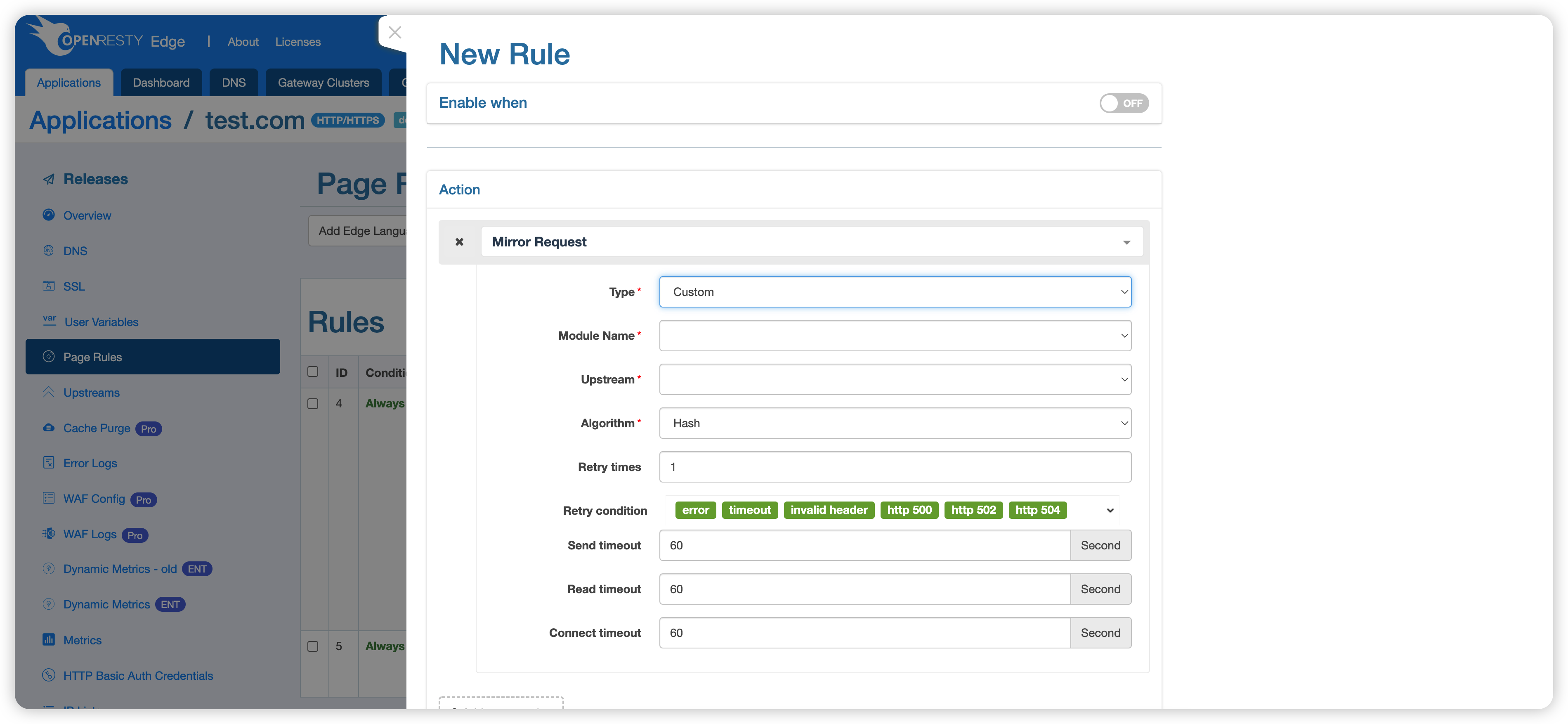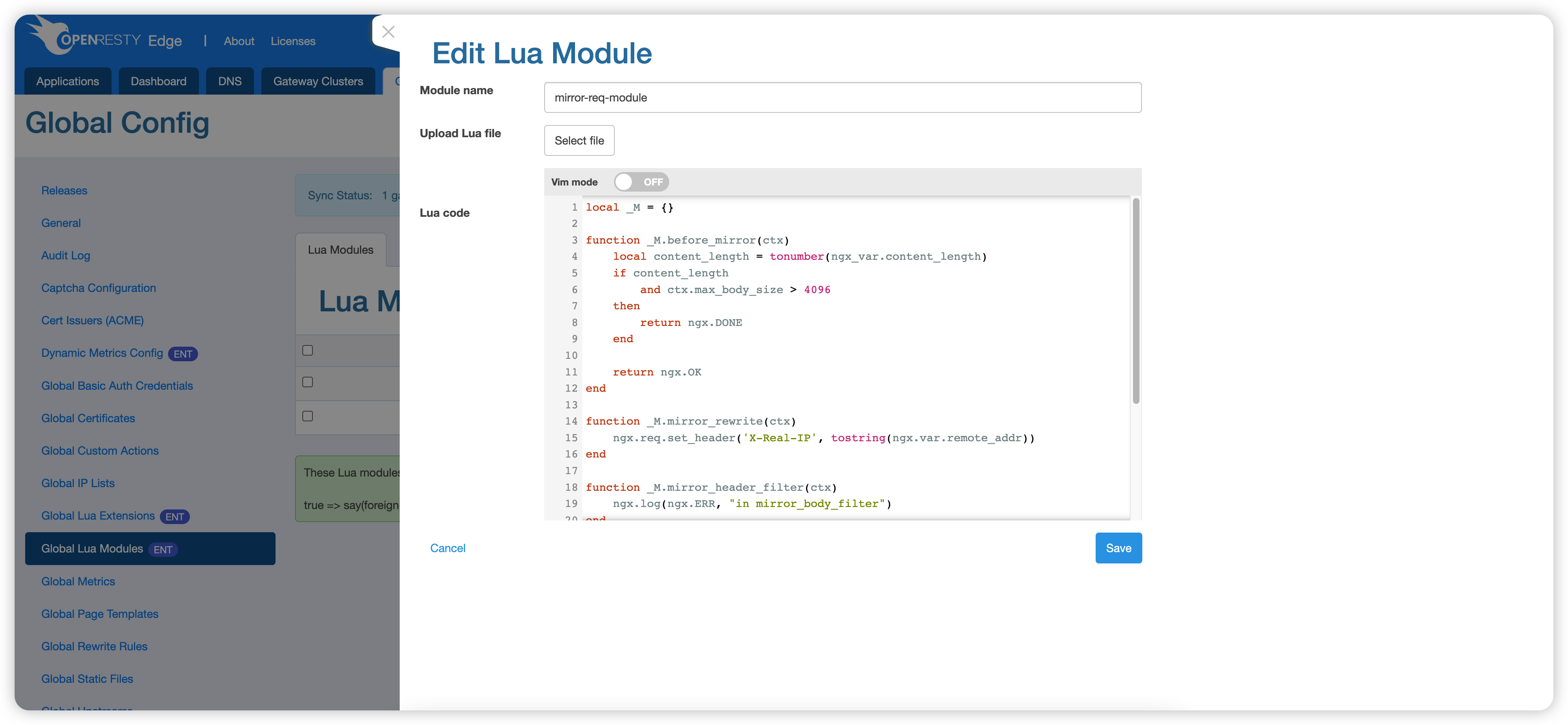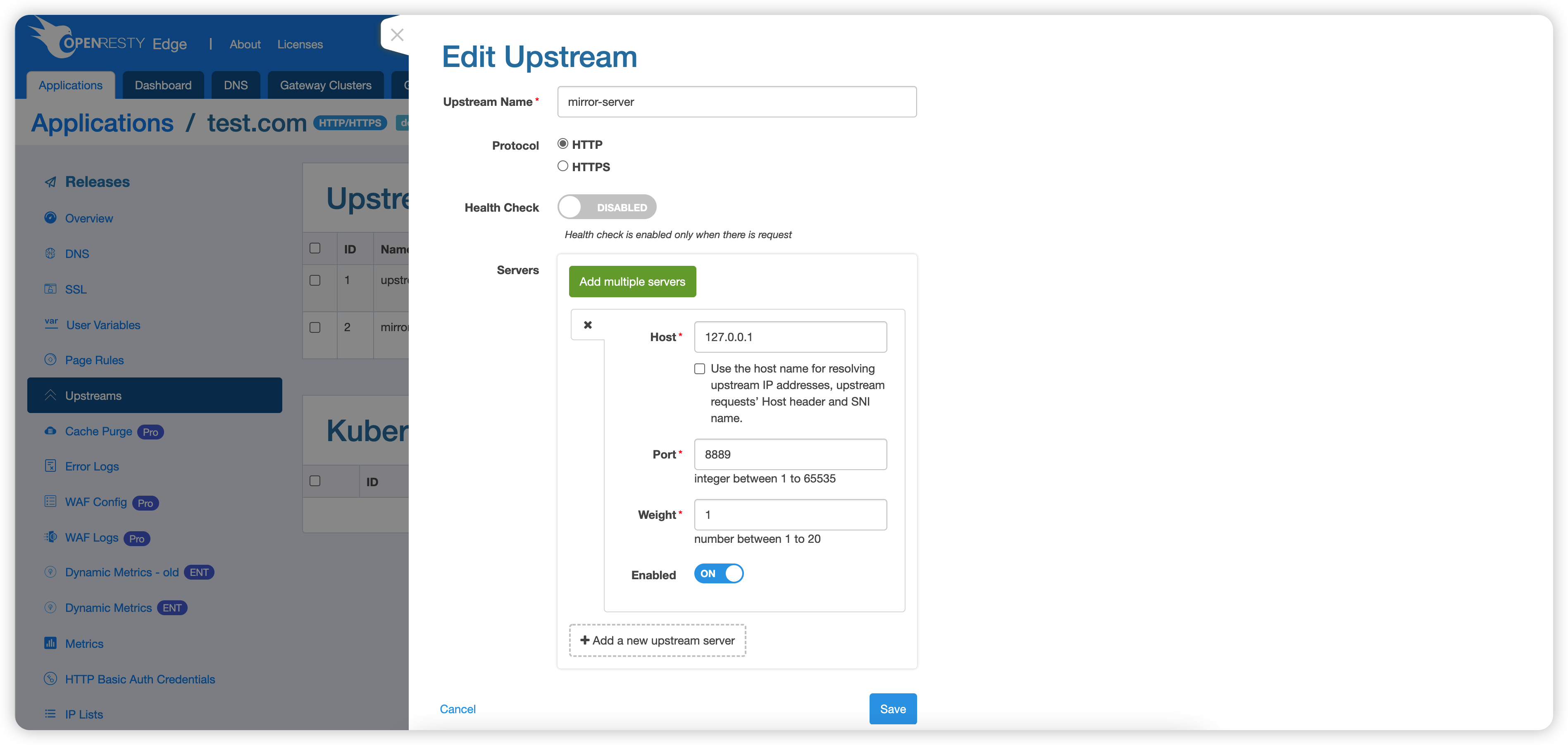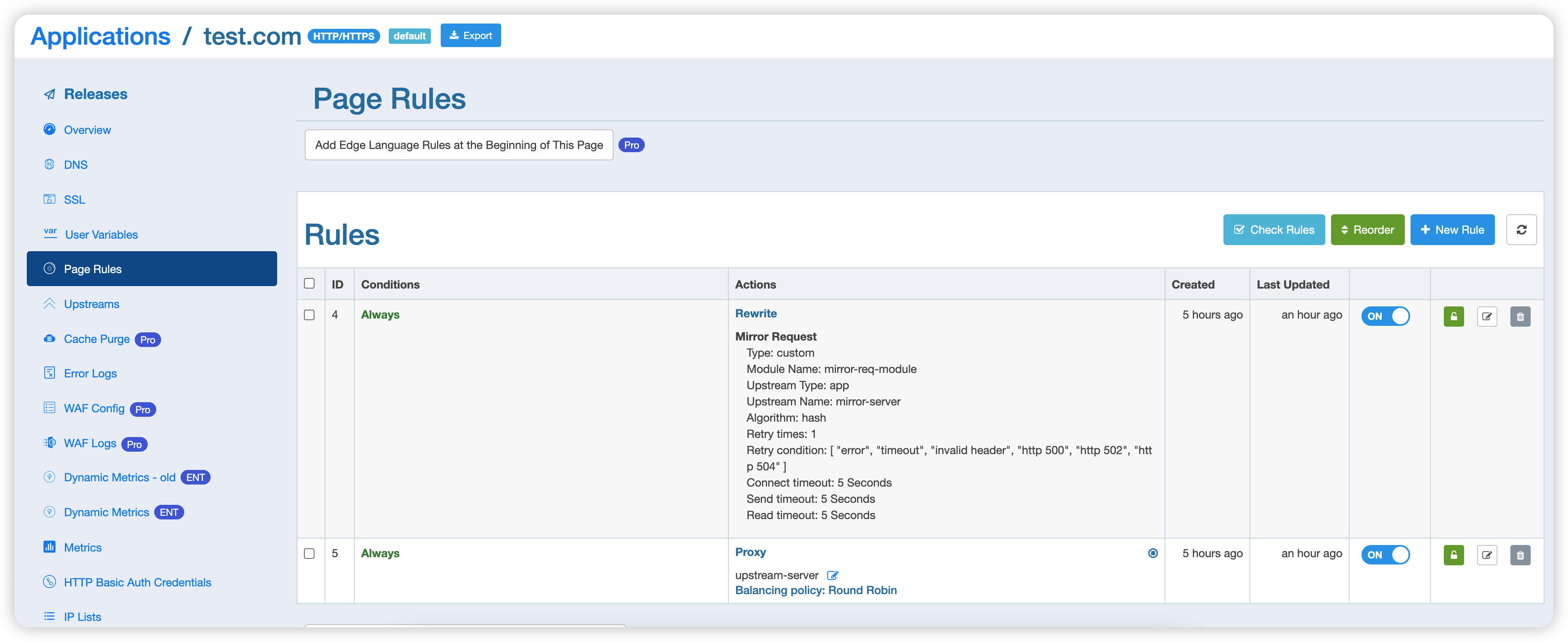Mirror Request
The mirror request feature allows generating subrequests to access additional servers, enabling various business scenarios. For example:
- Send requests to authentication servers for verification before allowing service access
- Send requests to WAF servers for security checks before permitting access

Configuration Parameters
- Type: Processing method for mirror requests
- RAW: Directly mirror the original request
- CUSTOM: Perform customized processing through a custom Lua module
- Module Name: When type is CUSTOM, specify the name of the Lua module that handles the request (see examples below for module format requirements)
- Upstream: Select the target upstream server for mirror requests
- Algorithm: Load balancing algorithm, supports Hash, Chash, Roundrobin
- Retry Count: Number of retries when requests fail
- Send Timeout: Timeout for sending data to the mirror server (in seconds)
- Read Timeout: Timeout for receiving data from the mirror server (in seconds)
- Connect Timeout: Timeout for connecting to the mirror server (in seconds)
- Async: Whether to enable asynchronous mirror requests (main request doesn’t wait for subrequest to return) (Added in v25.12.1-1)
- Forward Request Body: Whether to forward the original request body (Added in v25.12.1-1)
Note: When upstream servers have health checks enabled, the mirror request feature will enable fast-fail by default. This means when health checks show no available upstream servers, the system will skip mirror request operations.
Configuration Examples
1. Add Global Lua Module

Lua Module Example:
local _M = {}
function _M.before_mirror(ctx)
local content_length = tonumber(ngx.var.content_length)
if content_length and ctx.max_body_size > 4096 then
return ngx.DONE -- Skip mirror operation
end
return ngx.OK
end
function _M.mirror_rewrite(ctx)
ngx.req.set_header('X-Real-IP', tostring(ngx.var.remote_addr))
end
function _M.mirror_header_filter(ctx)
ngx.log(ngx.ERR, "in mirror_header_filter")
end
function _M.mirror_body_filter(ctx)
ngx.log(ngx.ERR, "in mirror_body_filter")
end
function _M.after_mirror(ctx, resp)
ngx.header['mirror-response-body'] = resp.body
end
function _M.header_filter()
ngx.log(ngx.ERR, "in main request header filter")
end
function _M.body_filter()
ngx.log(ngx.ERR, "in main request body filter")
end
return _M
Callback Function Descriptions:
- before_mirror: Called before subrequest creation, returning
ngx.DONEskips the mirror operation - mirror_rewrite: Called during the subrequest rewrite phase, can modify subrequest information
- mirror_header_filter: Called during the subrequest header_filter phase, can modify subrequest response headers
- mirror_body_filter: Called during the subrequest body_filter phase, can modify subrequest response body (not called in async mode)
- after_mirror: Called after subrequest completion (not called in async mode)
- header_filter: Called during the main request header_filter phase
- body_filter: Called during the main request body_filter phase
2. Add Mirror Server

3. Configure Page Rules

4. Test Request
$ curl http://test.com -v
* Rebuilt URL to: test.com/
* Trying 127.0.0.1...
* TCP_NODELAY set
* Connected to test.com (127.0.0.1) port 80 (#0)
> GET / HTTP/1.1
> Host: test.com
> User-Agent: curl/7.61.1
> Accept: */*
>
< HTTP/1.1 200 OK
< Date: Thu, 13 Oct 2022 08:25:22 GMT
< Content-Type: text/plain
< Transfer-Encoding: chunked
< Connection: keep-alive
< mirror-response-body: i am mirror server
< Server: openresty+
< Req-ID: 00000080000447f28b90004c
< Cache-Status: BYPASS
<
i am upstream
* Connection #0 to host test.com left intact
From the response results, we can see that the response headers include mirror-response-body: i am mirror server, indicating that the mirror request feature is working properly and successfully retrieved the response content from the mirror server.